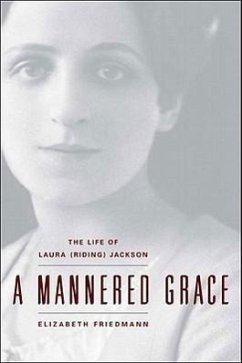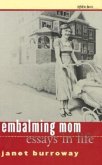A decade in the making and eagerly anticipated, here is the authorized biography, written by the woman Laura (Riding) Jackson took into her confidence. Elizabeth Friedmann met Laura (Riding) Jackson in 1985, after five years of correspondence, and worked with her until her death in 1991. From the vantage point of a close friend and with access to all of (Riding) Jackson's papers, Friedmann now sheds new light on the life and work of one of the most important yet perplexing figures in American and British literary history. With fascinating detail, Friedmann recreates the writer and her world. We share a young Laura's excitement when, in the early 1920s, her poems attract the attention of John Crowe Ransom and Allen Tate. We recognize her sense of destiny when she goes to England and begins her productive collaboration with Robert Graves. Friedmann shows the life and world circumstances that led to such historic works as A Survey of Modernist Poetry (written with Graves) and the Collected Poems of 1938. She takes us into Laura's diverse circle of associates that included Hart Crane, Gertrude Stein, and Virginia Woolf. So intimate is this portrait that the "scandals" of (Riding) Jackson's personal and professional lifeher "three-life" with Graves and Nancy Nicholson, her attempted suicide, her role in the breakup of Schuyler Jackson's first marriage, and her renunciation of poetryare demystified, put into perspective, made understandable. Friedmann shows that (Riding) Jackson was not a divided woman, as some have said. Rather, she maintained a "mannered grace" and possessed an inner consistency of thought and purpose. Beautifully written, fair-minded, and compassionate, A Mannered Grace humanizes a complex and often demonized figure, and allows for a reassessment of her remarkable achievement.
Hinweis: Dieser Artikel kann nur an eine deutsche Lieferadresse ausgeliefert werden.
Hinweis: Dieser Artikel kann nur an eine deutsche Lieferadresse ausgeliefert werden.








